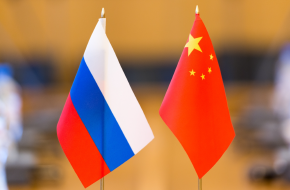
From March to May, international auditors of the Asia Pacific Accreditation Cooperation (APAC) evaluated the national accreditation system (NAS) of the Russian Federation in order to confirm the signatory status to the ILAC Mutual Recognition Arrangement in the following areas:
As well as considering the application to expand the scope in recognition of the following areas:
As a result the auditors recommended to confirm the status of RusAccreditation as a signatory of APAC MRA (ILAC MRA accordingly) in the current field, as well as to expand the scope of recognition by areas declared by RusAccreditation. The final decision will be made by APAC MRA MC by the end of 2021.
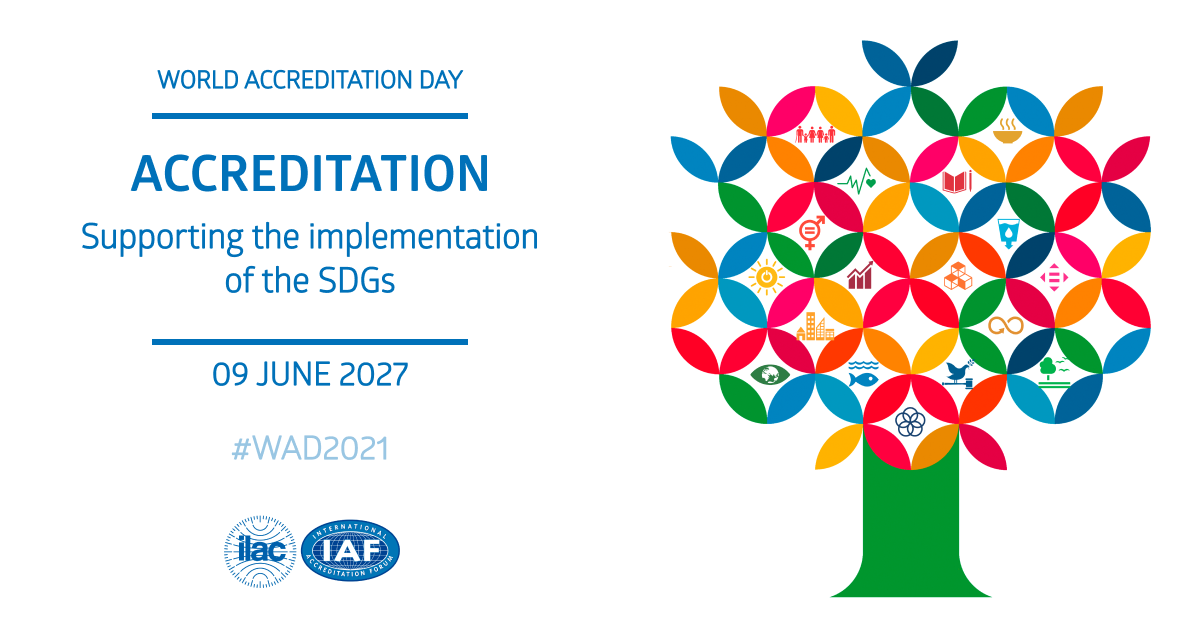
June 9 marks World Accreditation Day, a global initiative co-founded by IAF and ILAC with a view to improving public awareness about the importance of accreditation. The theme of World Accreditation Day 2021 was the role of accreditation in supporting the implementation of the sustainable development goals.
Supporting the initiative of international accreditation organizations, RusAccreditation promoted the role of the accreditation institute in the modern world and participated in the development and distribution of IAF and ILAC information materials in Russian.
In this regard RusAccreditation published on its website a joint video and IAF and ILAC brochure such on Accreditation: Supporting the implementation of the sustainable development goals.
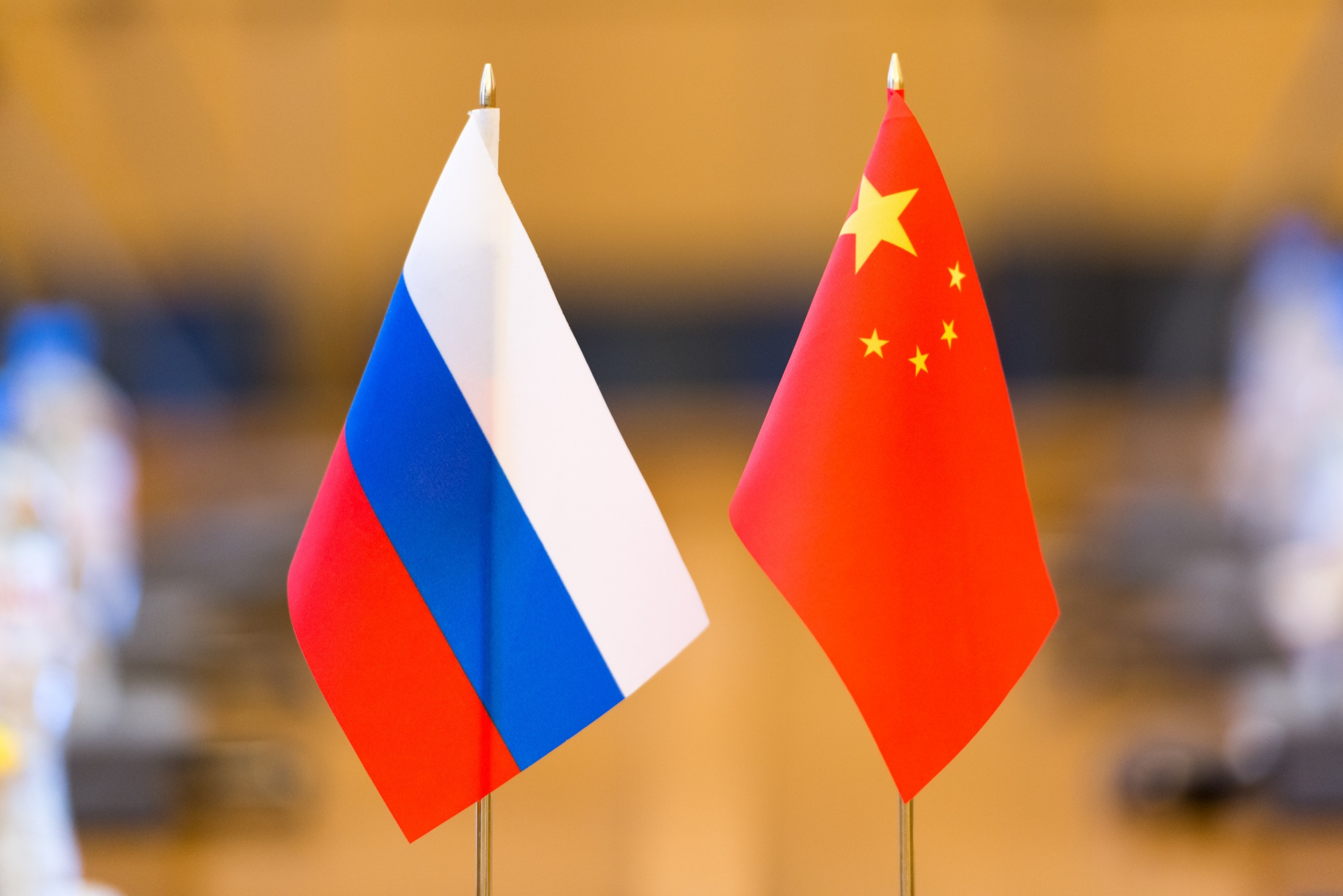
The 1st meeting of Working Sub-group on Accreditation and Testing Laboratories of China-Russia Standing Group on Standardization, Metrology, Conformity assessment and Inspection Control of the Sub-Commission for Trade and Economic Cooperation of the Commission for Arranging Regular Meetings of Heads of the Governments of Russia and China was held on July 28, 2021 in the videoconference format.
The delegations appreciated the many years of cooperation in the field of laboratory participations in proficiency testing rounds. Plans were outlined for new proficiency testing programs in the 2nd half of 2021.
Among other important issues discussed was that of conducting remote assessments of conformity assessment bodies amid the COVID-19 pandemic. Similar approaches were identified in the organization of the remote assessment.
The main risks of assessing conformity assessments bodies in a remote format and ways to minimize them were also reviewed.
In addition, the delegations shared experiences for improving management systems of RusAccreditation and CNAS. Also the Chinese delegation shared experiences on the implementation of the Medical laboratories standard, ISO 15189.
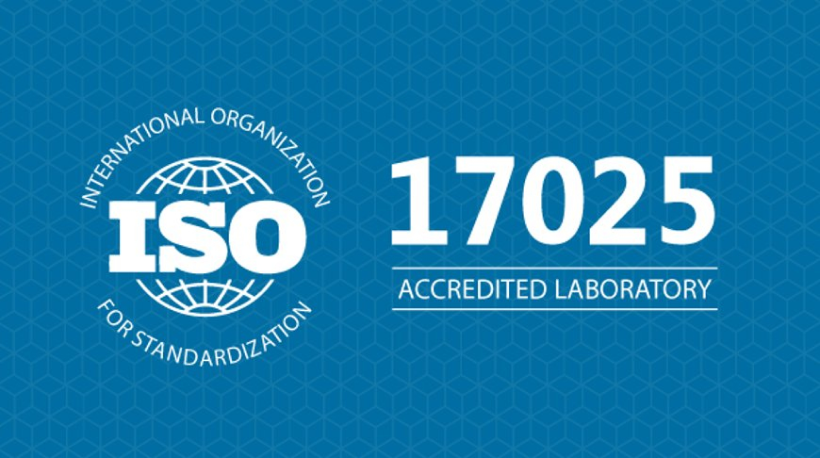
A new version of ISO/IEC 17025 was published in November 2017. ILAC General Assembly Resolution No. 20.15 of November 4, 2016 as well as the joint ISO and ILAC communiques, established a three-year transition period for testing and calibration laboratories to ISO/IEC 17025:2017 from its publication.
On 11 June 2020, due to the spread of COVID-19 and measures to minimize the impact of the pandemic, the joint ISO and ILAC communiques were amended and the transition period extended from November 30, 2020 to June 1, 2021.
RusAccreditation approved a plan for the transition of National Accreditation System (NSA) participants to the international standard ISO/IEC 17025:2017, including training seminars provided on the NSA unified educational platform for assessors and officials of RusAccreditation. Advanced training courses were also provided for assessors, technical experts, managers and specialists of testing and calibration laboratories to implement the requirements of interstate standard GOST ISO/IEC 17025-2019 (ISO/IEC 17025:2017, IDT).
According to the results of the transition period, all laboratories accredited in the national accreditation system meet the requirements of GOST ISO/IEC 17025-2019 (ISO/IEC 17025:2017, IDT). Accreditation of laboratories that had not switched to the new standard by June 1, 2021 was suspended or terminated.
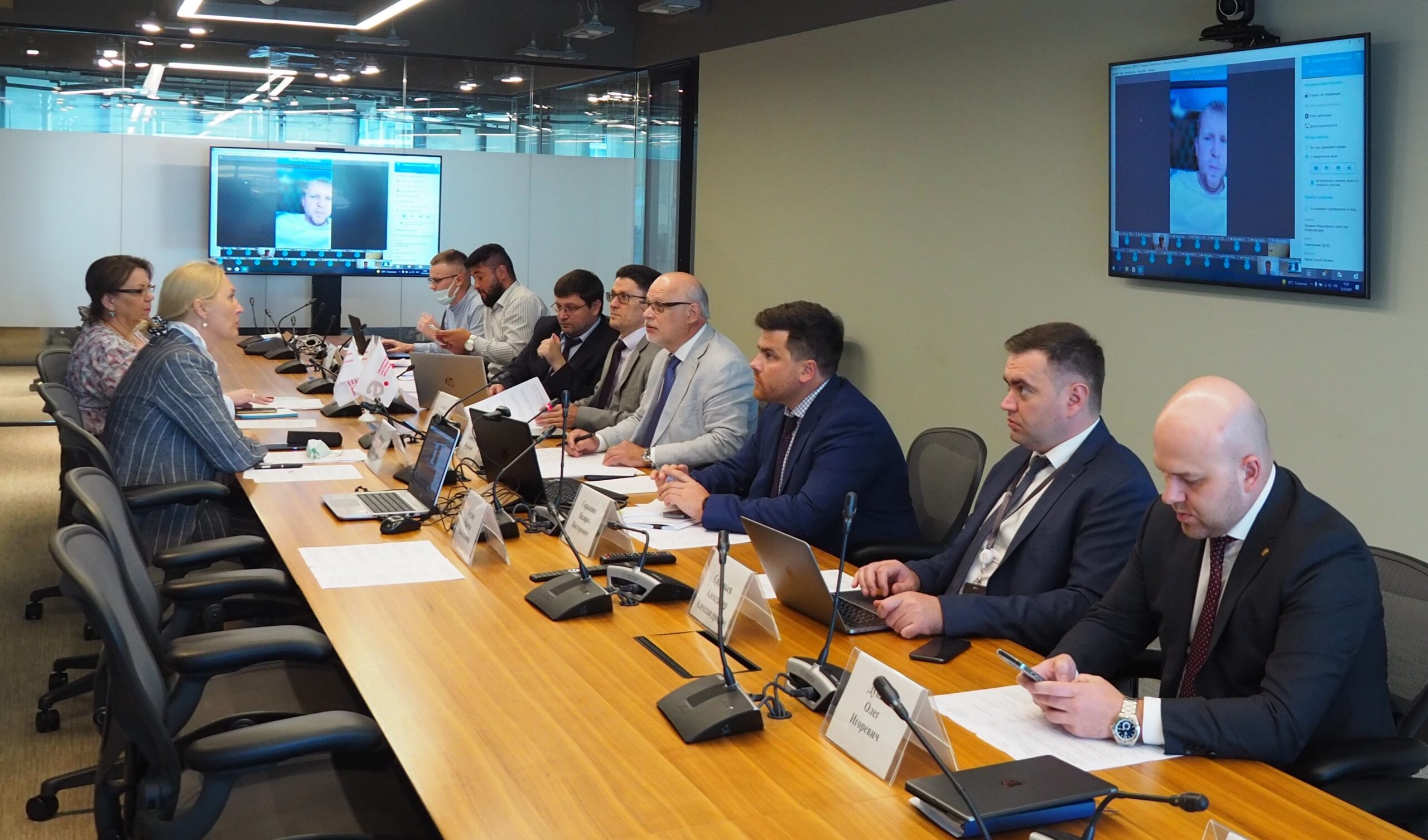
In July 2021 the regular meeting of the Public Council under RusAccreditation was held through video-conference. The main topics for discussion were the results of the international peer-evaluation of the national accreditation system in 2021 by the APAC, the review of the Technical Committee for Standardization «Conformity Assessment» (TC 079) and the working group on the activities of accredited CABs in the field of conformity assessment of construction materials, products and structures.
The Chairman of the Public Council under RusAccreditation noted the effective cooperation among RusAccreditation and the members of the Public Council, its working groups and committees, as well as the transparency of the collective taken actions.
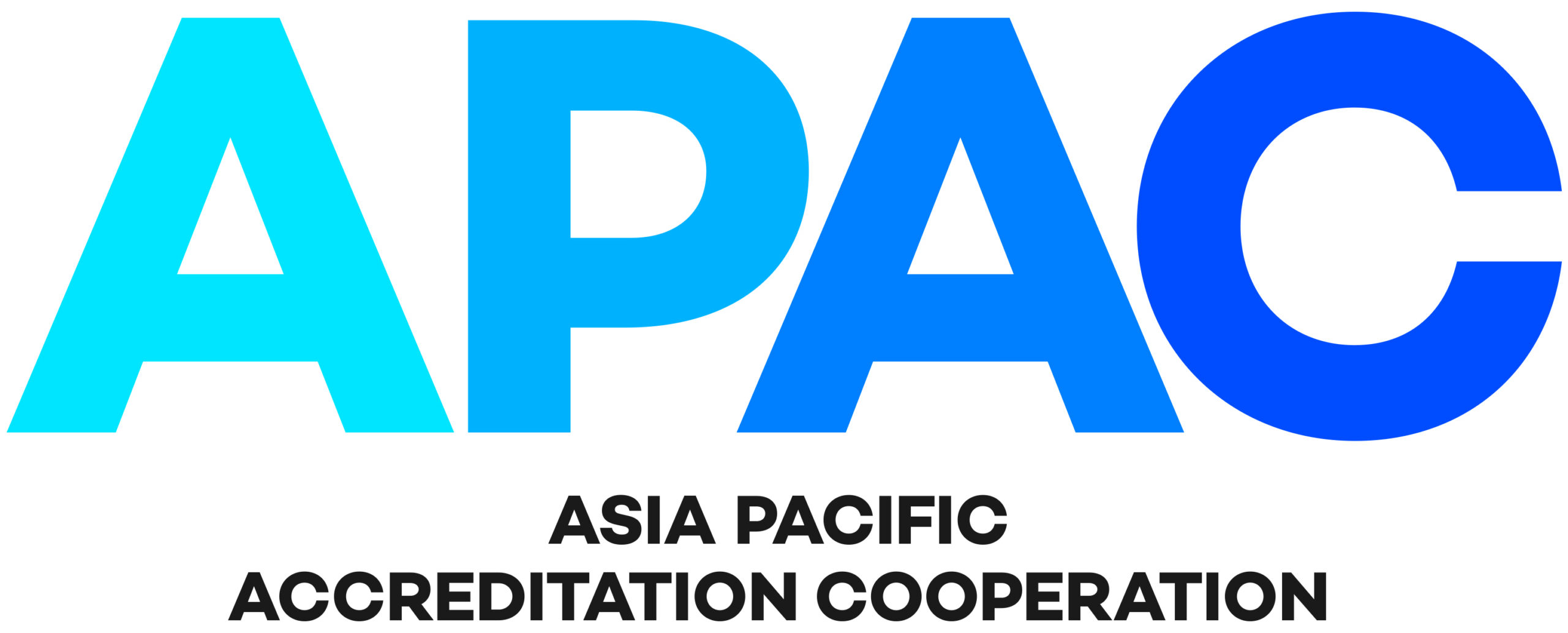
In June 2021, the annual meeting of the General Assembly of APAC was held in the format of a videoconference. About 200 representatives of full, associated and affiliated members of APAC took part in the meeting. Representatives of RusAccreditation took part in the meeting from the Russian side.
During the meeting the report on the implementation of the Strategy plan as well as the reports of the heads of the standing committees of APAC were presented.
The Capacity Building Committee Chair Mr. Brahim Houla presented an overview of the APAC Knowledge Centre. Among the training programs, the course on the international standards ISO/IEC 17025:2017 the translation of which was prepared by RusAccreditation in association with the National Institute for Accreditation of RusAccreditation was noted.

Aspects of Accreditation in Turkish MRV of Greenhouse Gas Emissions
Turkey has set up a monitoring, reporting and verification system (Turkish MRV) to measure the amount and reduction of greenhouse gases emitted to the atmosphere by fixed installations. This is in line with global efforts that aim to limit the increase of atmospheric temperature by 1.5°C. This system is enforced by legislation, which requires mandatory accreditation of Verification Bodies verifying greenhouse gas emissions.
As a result, TURKAK has developed and implemented an accreditation program which takes into account several aspects of accreditation. Although ISO EN 14065 is being used as a Level 3 standard, there are other accreditation Level 3 standards that should be used in association with the ISO EN 14065 in order to measure the emissions with assurance and accuracy. As such, laboratories taking part in the system are now obligated by legislation to be accredited to and comply with the requirements of ISO/IEC 17025 standard. Given that, there are more than seven hundred installations in the system from a variety of manufacturers such as cement factories, refineries, electricity generation, and so on; now their laboratories and their associated laboratories to comply with the accreditation standard. The makes up to more than a thousand laboratories in the market.
Furthermore, legislation now requires several new tests (properties of biofuels, carbon content of some raw of semi-raw materials) that were not previously in the capacity to be performed by competent laboratories. As a result, many laboratories have had their accreditation scopes extended to include these new tests.
The Ministry of Environment and Urbanization is currently developing Proficiency Testing schemes for the tests in question to maintain the quality level across the country, meeting a demand for accreditation to be a Provider in accordance with the ISO/IEC 17043 standard.
Moreover, to calculate the amount of activity data (for example, weight – volume of material), inspection activities such as draft survey of ships containing materials or sampling of some fossil fuels or scraps from part of the imported bulks or calculation of volume of storage tanks can take place. For proper implementation of these activities, Verification Bodies and TURKAK are using the requirements of ISO/IEC 17020 standard. Accreditation of inspection bodies’ however, is not yet mandatory.
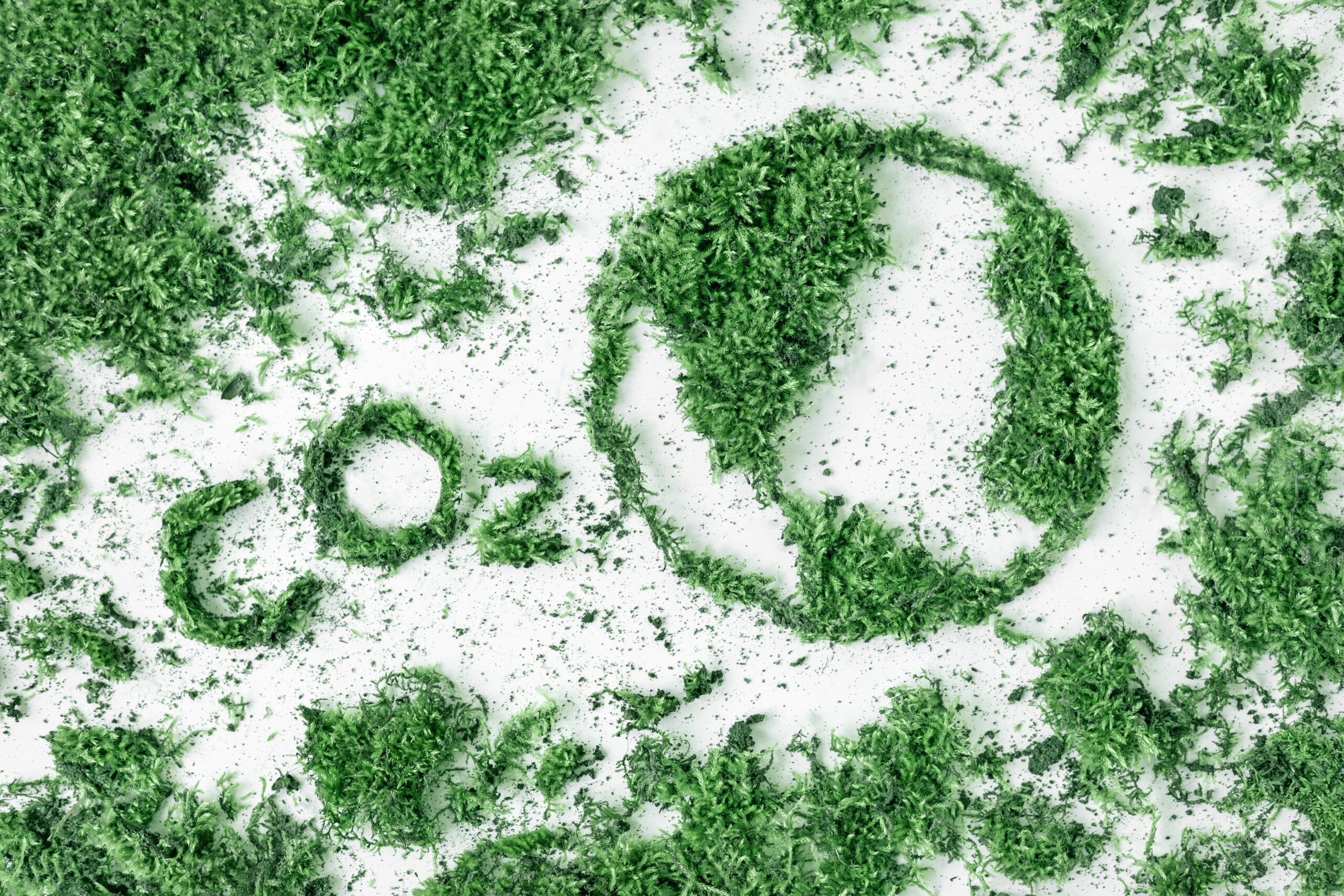
Lettering CO2 and drawing planet earth from grass and moss. The concept of ecology, air pollution and global warming. Environmental protection
How accreditation helps SDG 7 in Turkey
The struggle to find clean and safe fuels and develop technologies to expand the use of renewable energy continues worldwide. Hydrocarbon-based energy is becoming expensive and is moving towards being a less attractive option due to the damage it causes to the environment. Besides the financial impact, measures taken to reduce its use and incentives given for alternatives play an important role in making it more expensive. However, undoubtedly the most important challenge is minimizing or eliminating the damage caused by hydrocarbon-based fuels to the environment.
To this end, the United Nations has set the goal ‘Ensuring Access to Affordable, Reliable, Sustainable and Modern Energy for All’ under the Sustainable Development Goal (SDG) 7. Various sub targets and indicators have been identified under this goal and these indicators are monitored on an annual basis. According to the 2021 edition of ‘The Energy Progress Report’, the latest available data and selected energy scenarios reveal that at today’s rate of progress, the world is not on track to achieve SDG 7. This is particularly true for the most vulnerable countries and those that were already suffering.
In Turkey, under SDG 7, overall performance evaluation shows that positive progress was achieved towards indicators of population with access to electricity (%) and share of renewable energy in total primary energy supply (%). Projects that reduce energy intensity and increase efficiency have been organized through incentives and support practices followed by the Energy Efficiency Coordination Board within the Ministry of Energy and Natural Resources.
In line with these efforts and the progress, various legislations have been put into effect in the housing sector for the spread of insulation applications, efficient and environmentally friendly energy consumption, and efficient use of lighting and electrical household appliances. Further improvements have been made in the field of energy efficiency such as reducing fuel consumption levels in passenger cars, public transportation and rail transportation infrastructure, increasing the quality of roads and developing signalling systems suitable for needs in the transportation sector.
The Energy Efficiency Law No. 5627 and Regulation on Energy Performance in Buildings were implemented, and the Energy Performance Certificate application was initiated regarding the efficient use of energy in buildings, energy saving, control of greenhouse gas emissions, insulation properties and efficiency of heating/cooling systems. The National Energy Efficiency Action Plan includes items such as improving the financing mechanism and providing support for energy efficiency projects, as well as the establishment of energy management systems.
Accreditation has a special function under all these legal, technical, and financial considerations. The Ministry of Industry and Technology provides incentives to companies for their certification activities related to these purposes. SDG 7.3 sets a target for the improvement in energy efficiency. In accordance with these goals and targets, TÜRKAK has started to provide accreditation services to certification bodies in the field of ISO 50001 Energy Management Systems. TÜRKAK accredits test laboratories in the fields of energy efficiency and performance measurements according to the ISO/IEC 17025 standard. TÜRKAK also accredits energy efficiency testing laboratories for energy efficiency certifications. The accredited testing laboratory infrastructure has an important place in product certification processes in the field of energy efficiency. Furthermore, TÜRKAK has direct or indirect contribution to the management and evaluation of energy efficiency in many areas.

Wooden house miniature and solar panel close up, green energy concept

As part of the strategic priority to “To be agile, enabling the organisation to adapt and innovate” UKAS has been examining and researching the impact of the 4th Industrial Revolution (4IR) on accreditation and the conformity assessment sector. What is clear is that 4IR is a large diverse topic covering a multitude of differing technologies including:
Artificial Intelligence (AI); Machine learning; Internet of Things; Blockchain/Distributed Ledger Technology; Big Data; Wearables; Virtual/Augmented Reality; Autonomous Vehicles; Digital Healthcare; Genomics; 3D Printing/Additive Manufacturing; Cyber Security; Smart Devices; Nanotechnology; Robotics and Cloud Computing.
It is evident that many of the technologies have the ability to not only introduce change to the accreditation and the conformity assessment communities but also to change how we all live and work.
Through conversations and meetings with customers and stakeholders about 4IR in the conformity assessment sector the picture that emerges is very mixed. Some are very early on in their journey with 4IR and others are much further down the road, already identifying the potential for 4IR technologies to improve the services or products they provide.
Regardless of which technologies are being considered however, and how far along the process organisations are, there is a fundamental need for business and consumer confidence in these new technologies. The potential for products such as Smart Devices, AI and Self Driving vehicles is evident and exciting, but their perceived complexity can make businesses and consumers wary. As can be seen through concerns over data security of Smart Devices and AI systems inheriting the biases against specific demographics based on the data they were ‘trained’ upon.
Accredited conformity assessment can provide a solution to deliver the necessary trust and confidence in a new generation of products and services that are underpinned by 4IR technologies. Whilst these new technologies can initially appear complex to provide assurance on, the existing mechanisms used by the conformity assessment sector (namely Testing, Inspection and Certification against agreed specifications, regulations or standards) are appropriate to provide the level of assurance required.
There is a need for the conformity assessment sector to work with these emerging technologies and develop its skills in 4IR. This will enable us to understand the critical points at which these technologies have to be tested or inspected, so that the standards and specifications that are developed are fit for purpose. Doing so will support ongoing innovation whilst providing the necessary assurance demanded by regulators, businesses and customers.
Already UKAS has been closely involved with its National Quality Infrastructure (NQI) partners the Department for Business, Energy & industrial Strategy (BEIS), the British Standards Institution (BSI) and the National Physical Laboratory (NPL) in producing an Action Plan for Regulation for the 4IR. This has been an excellent example of the NQI partners working in collaboration and represents some initial steps in what will be an ongoing journey to provide trust and confidence in 4IR technologies.